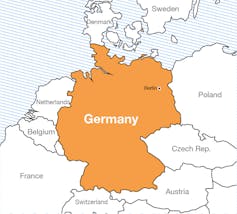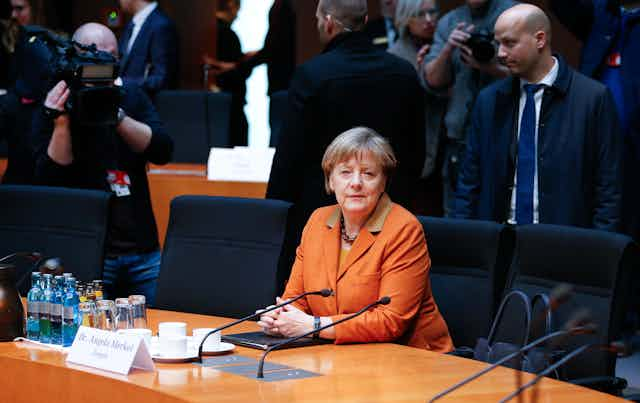
When Germany goes to the polls in the second half of 2017, there is a chance that the status quo will prevail. This is a country that accepts the idea of a grand coalition led by Chancellor Angela Merkel’s Christian Democratic CDU/CSU, which also includes the main opposition party, the Social Democratic Party (SPD). But consensus politics cannot be assumed in the coming months.
After all, many Germans are dissatisfied with the significant size of Germany’s contribution to the EU budget and to its bailout funds. Many are also unhappy with the influx of refugees to Germany and the strain on state facilities, infrastructure, services and resources.
The linking of immigration and refugees flows with security has led to a perception that Germany is under threat from refugees, despite considerable support for Germany’s welcoming culture (Willkommenskultur). Within her own party, Angela Merkel faces opposition to her decision to accept up to 1 million Syrian asylum seekers into Germany. Her response is that Germany can cope – yet this principled stand has not had resonance among those voters who perceive the Germans as once again bearing a large financial burden and also taking on responsibility for a policy that requires European solidarity.
Of course, Merkel is also keenly aware that the economy needs workers, given that Germany has a skills shortage and a very low birth rate. It is the largest economy in Europe and German GDP is predicted to increase by 1.5% next year.
Many voters still admire Merkel, but there is growing enthusiasm for SPD candidate Martin Schulz, a committed European, as an alternative. He quit his position as president of the European Parliament to return to national politics before the election. Schulz is polling very well and the SPD’s membership is increasing this year.
Both Merkel and Schulz are part of a consensus on the benefits of EU membership. In Germany, unlike the UK, there is little mainstream opposition to EU membership.
However, as is the case in many EU countries, there is considerable public disenchantment with mainstream political parties. Protests are on the increase across Germany, primarily in the form of the Alternative for Germany party (AfD), which is polling at over 10%, and the anti-refugee, anti-Islam populist movement Pegida.
Merkel has been criticised for caring more about Europe than about Germany. At a time when US President Donald Trump is proving to be increasingly isolationist, Merkel is being considered as the de facto leader of the free world. She is admired for her principled stand against Trump’s ban on travel from seven Muslim-majority nations. Yet many voters are considering an alternative. There is dissatisfaction with the handling of last year’s terrorist attack in Berlin and with the tax burden of the welfare state.
The mother of the nation may be replaced by the SPD or, more likely, a social democratic-led consensus coalition in which her party could be, for a change, a minor party.

